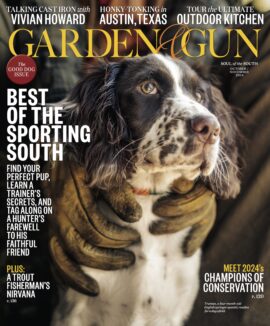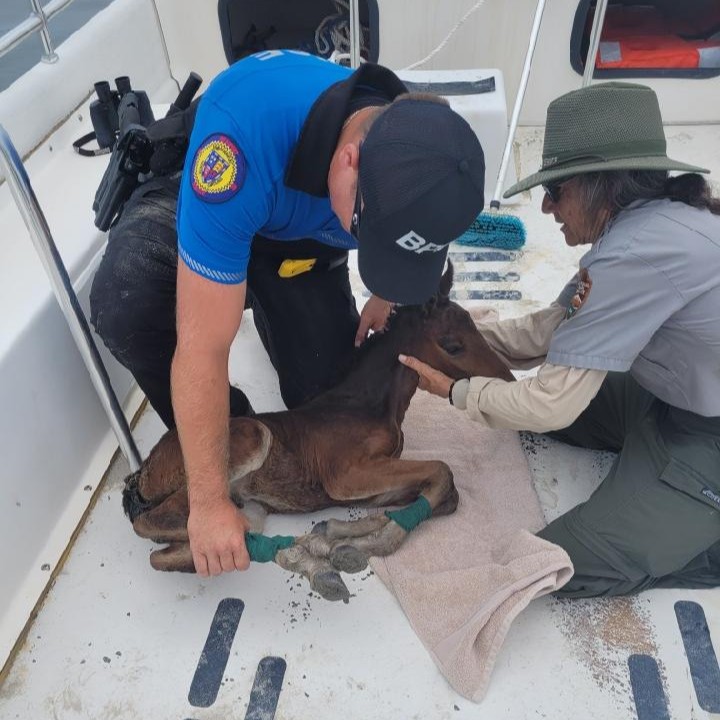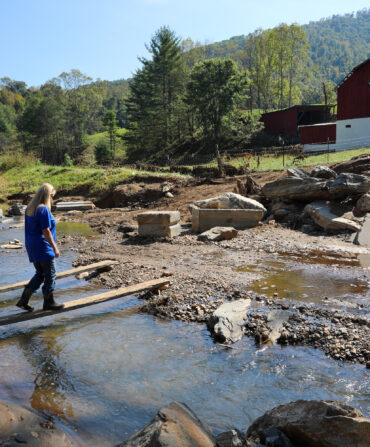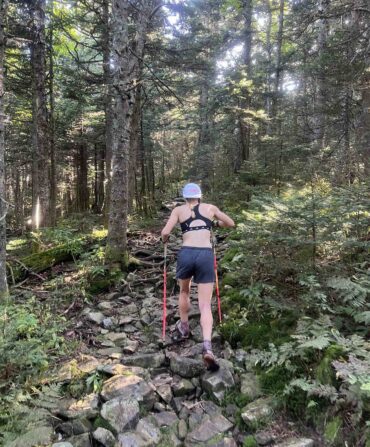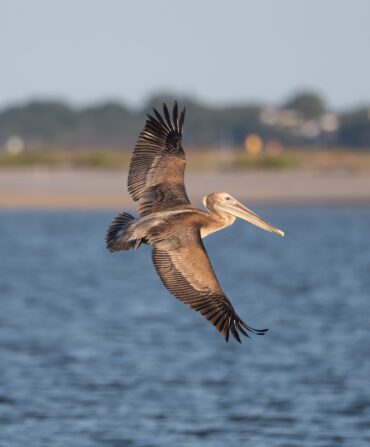The wild horses on North Carolina’s Outer Banks are known for their resilience, having lived on the wind-battered salt marshes for centuries. Their origin story is murky at best, though legend has it they descended from Spanish horses shipwrecked off the coast in the sixteenth century. These days, only a few hundred of these critically endangered equines, known as Banker horses, reside on the barrier islands. Private groups work closely with state park officials and other government agencies to oversee the herds. Though management is typically hands-off, this month the community sprang into action to save a newborn filly at the Rachel Carson Reserve, a complex of small islands near the historic town of Beaufort.
The saga began on August 4 when the site manager, Paula Gillikin, received a report that a foal was born the previous weekend. The next morning, Gillikin visited the island and found the female foal with her dam, but it was obvious the filly wasn’t acting normally—she wasn’t nursing well and showed signs of gastrointestinal pain. After observing the youngster’s abnormal behavior for several hours, Gillikin conferred with the reserve’s veterinarian and the Cape Lookout National Seashore’s wild horse herd manager, and they decided the filly needed immediate veterinary intervention.
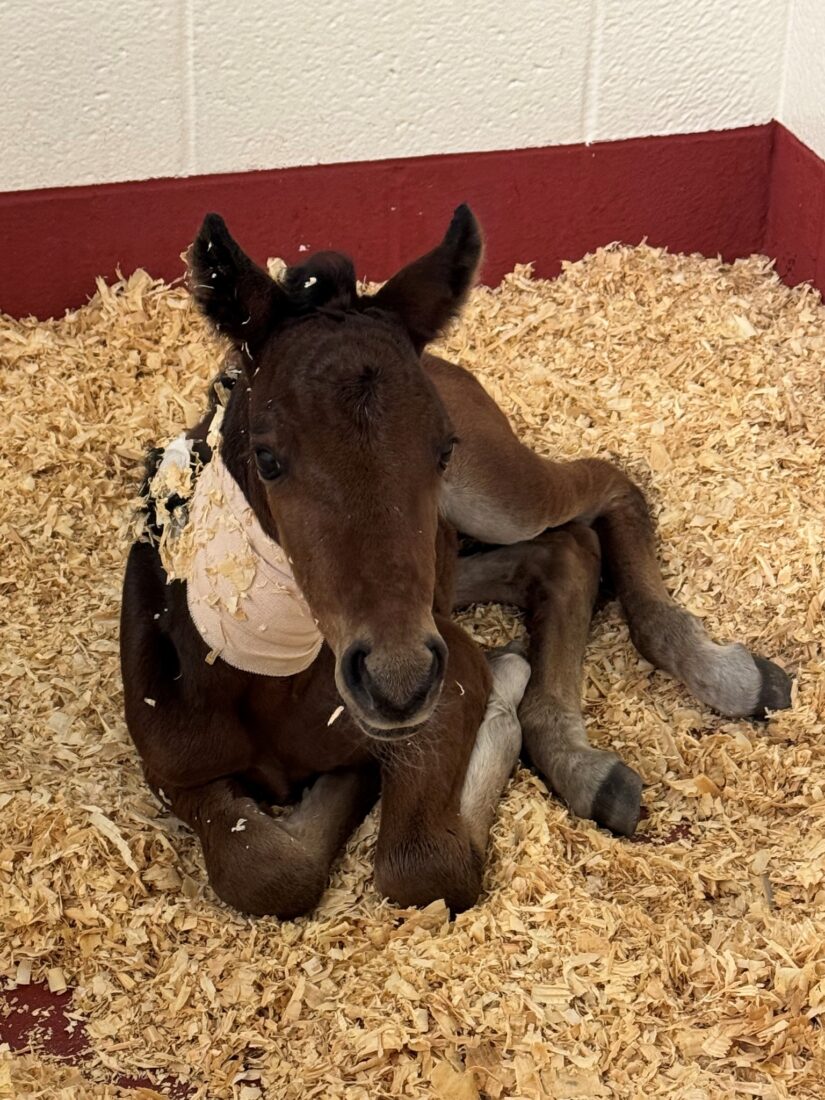
The reserve aims to keep the horses as wild as possible, so any sort of handling isn’t taken lightly. “They do not receive vaccines or supplemental feed and water,” Gillikin says. “However, if a horse is suffering significantly from an injury or medical condition, staff will consider seeking veterinary care.” That care is especially critical now: Due to unexpected losses of herd members in recent years, their numbers have dwindled to the low twenties—well below their range of twenty-eight to thirty-two horses.
A team of three people carried the filly to the reserve’s twenty-seven-foot flat-bottom boat, which waited nearby on a sandy shoreline, while Gillikin directed the foal’s mother away from the group and a Beaufort police boat hovered close to provide support. Once she arrived back on land, the tiny foal was quickly transported to N.C. State College of Veterinary Medicine in Raleigh, North Carolina. There, she received life-saving transfusions to increase her IgG levels, a key indicator of immune health, and was treated for colic, a condition that had caused her initial gastrointestinal distress.
But even after the filly, who’d been dubbed “Pearl,” received a clean bill of health, her future remained uncertain. Pearl could not return to the island because she might introduce pathogens to the unvaccinated herd—plus, her mother had demonstrated the inability to adequately nurse her. (A similar situation had arisen with another foal born to Pearl’s mother last year, one that sadly did not survive.) It’s also considered inhumane to return a horse to the island after it has grown accustomed to the care of humans; eventually a habituated wild horse may pose a danger to visitors.
What does one do with a weak, orphaned, and feral foal? A quick-thinking veterinarian contacted Tiara Hecht, president of the Renaissance Equine Rescue and Welfare Foundation in Pinehurst, North Carolina, to see if she would be willing to accept a new charge. Hecht’s team oversees the care of around forty rescued horses of varying breeds and ages, and about half of them are not adoptable due to their special needs. What’s one more, Hecht reasoned.
The next course of action was to find a surrogate mother who could not only provide adequate nutrition but teach the filly all the necessary herd skills. For that, the rescue reached out to Bronwyn Watts at ColdSprings Nurse Mares, a Florida-based organization that provides nurse mares for orphaned or rejected foals, a vital service in the breeding world. These surrogates undergo hormonal induction, a method that allows them to lactate without giving birth themselves.
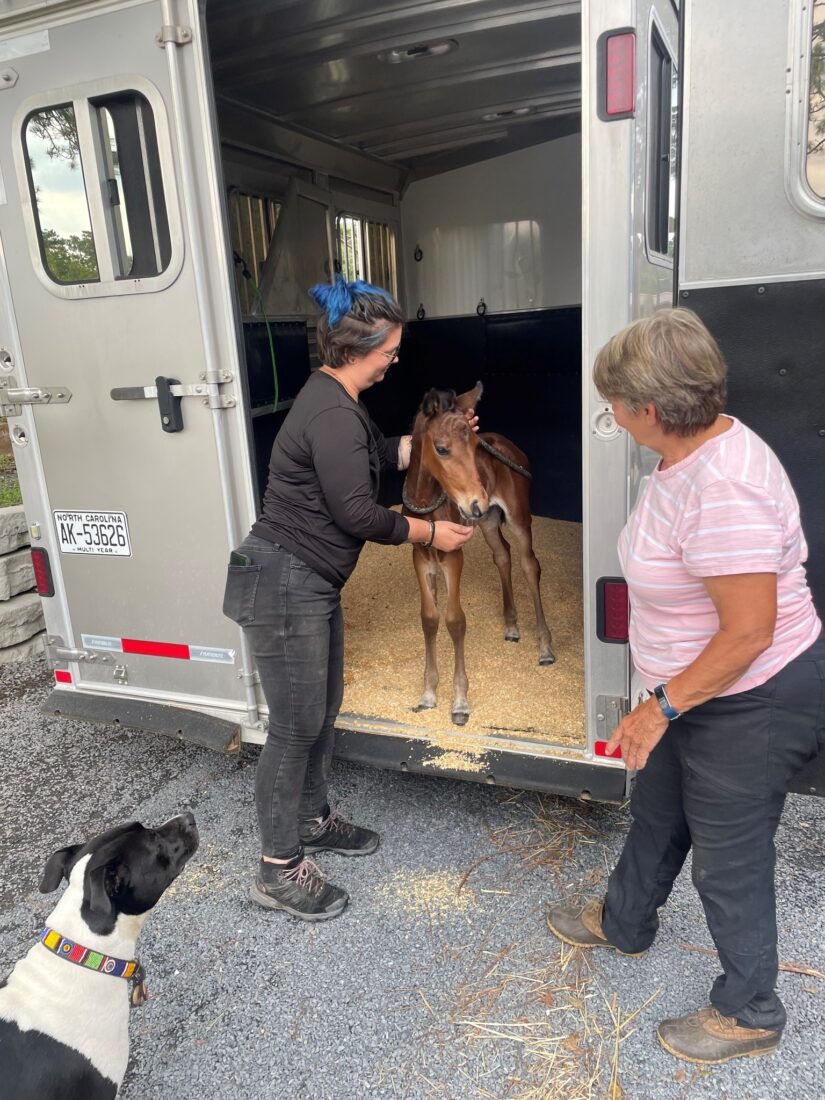
Luckily, one of Watts’s mares was available. Even better news? She was mere hours away. So on August 11, Hecht’s team picked Pearl up from the hospital to take her to Pinehurst and introduce her to “Grace,” a palomino quarter horse whose heart is as golden as her coat.
“Grace was selected because she herself is also small and she’s very gentle with foals,” Watts says. “Grace immediately greeted Pearl with soft nickers and warm nudges. This tiny tot was just fifty-one pounds and about a week old, but was so eager to nurse and refused human guidance. These pairings are a very delicate process that we’ve got down to a science, but sometimes babies have their own ideas.”
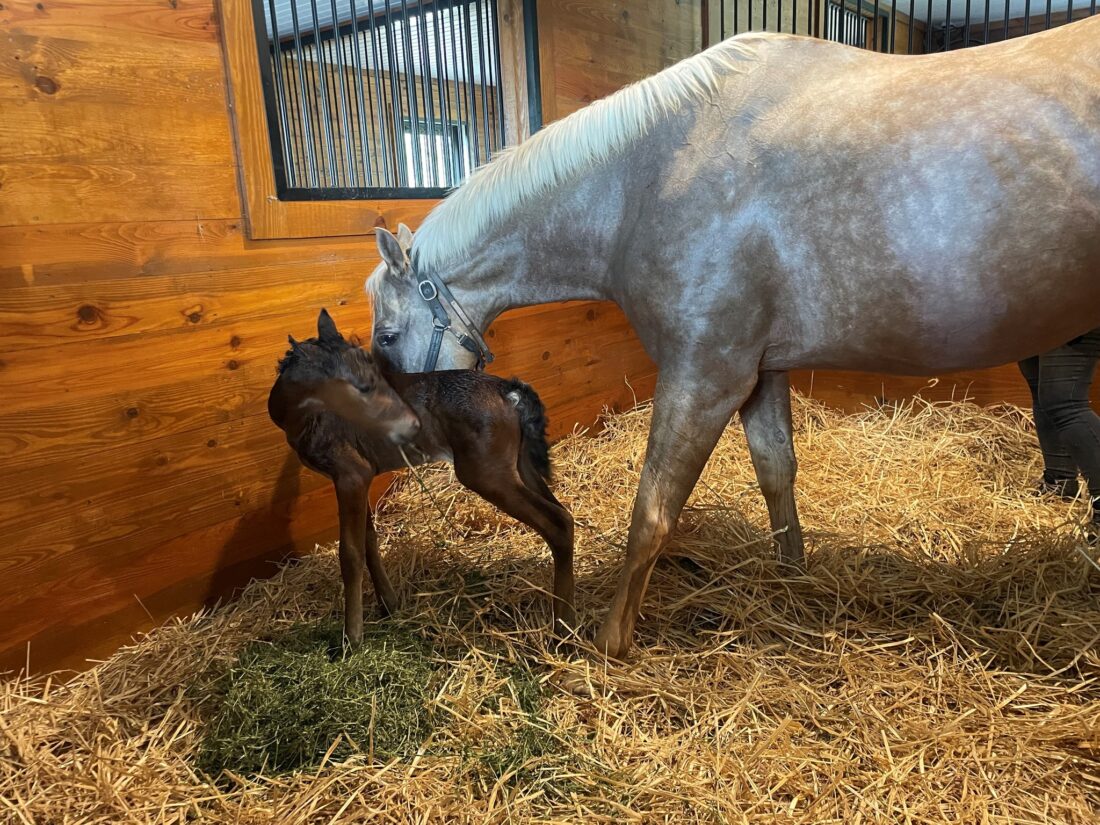
Fortunately, Grace patiently guided Pearl in the right direction, and soon enough the filly was happily nursing on her own. The bonding continued the next day as the pair got acquainted with their private paddock at the rescue. “They both zoomed around exploring their new environment until the grass became more interesting to Grace,” Hecht says.
Now, they spend their days meandering around the pasture, with Grace grazing and Pearl sleeping when she’s not eating—like a typical baby. “Their pasture has a large run-in shed with fans, which Grace seems to appreciate in the heat of the day,” Hecht says. “Pearl is quite content with napping in the sun.”
After a rocky start to her young life, the future looks bright for Pearl. She’ll spend the next several months by Grace’s side at the rescue, until the mare heads back to Florida for a well-earned vacation. Besides frolicking in her field, Pearl will also learn good manners and basic handling skills from the rescue’s team—plus how to be a typical horse in a herd, thanks to lessons from Grace. And since Pearl cannot return to her island birthplace, she will be offered up for adoption in a year. “The adopter will need to have experience with young horses and have a training plan,” Hecht says. “We believe training is essential to their long term safety and well being.” And if no such adopter presents themselves, Pearl will be trained as a riding horse when she is old enough, giving her yet another opportunity for adoption. Either way, this rare jewel of the Outer Banks gets a second chance thanks to a dedicated community of rescuers and a little nudge from Grace.
Also see: Healing on a South Carolina Horse Farm

